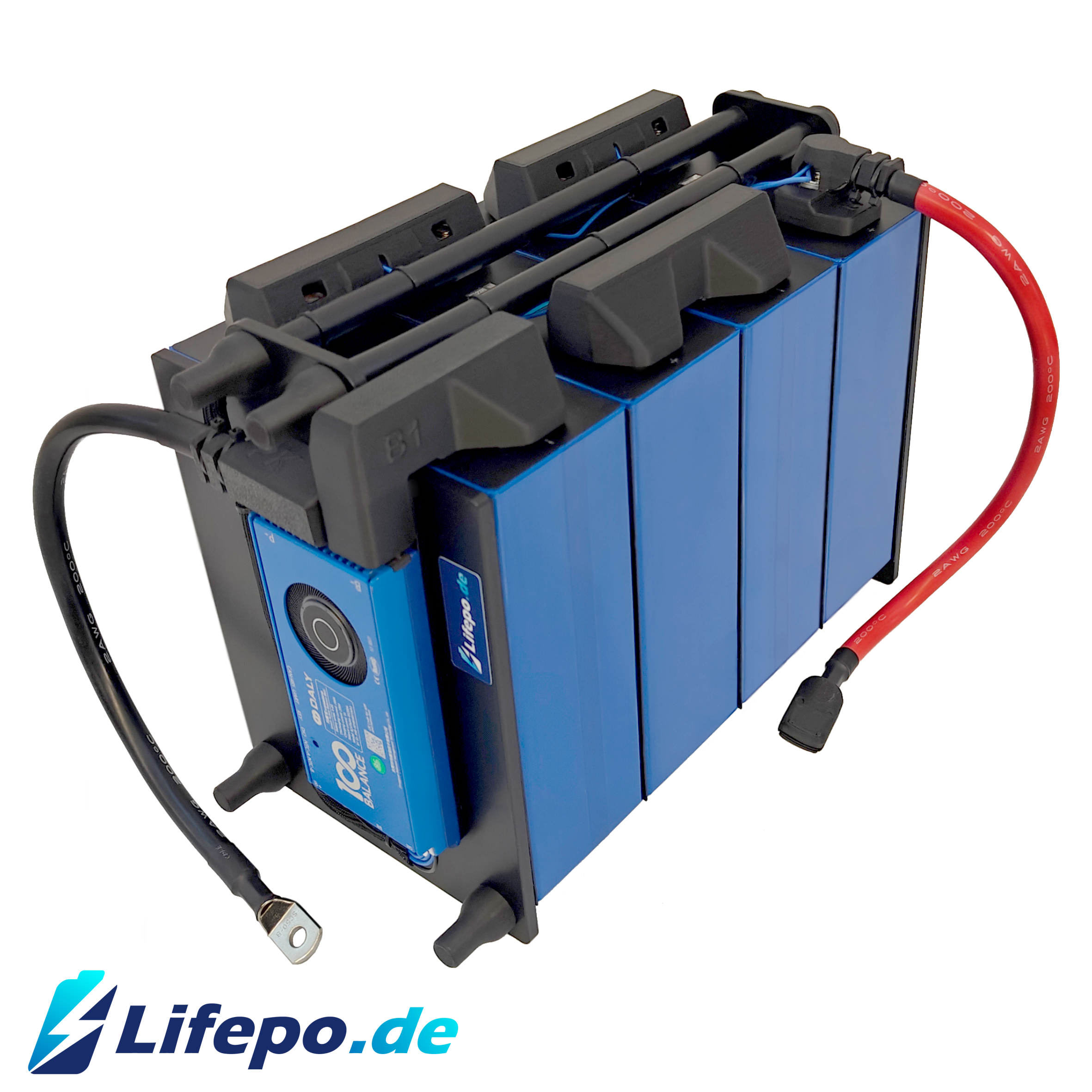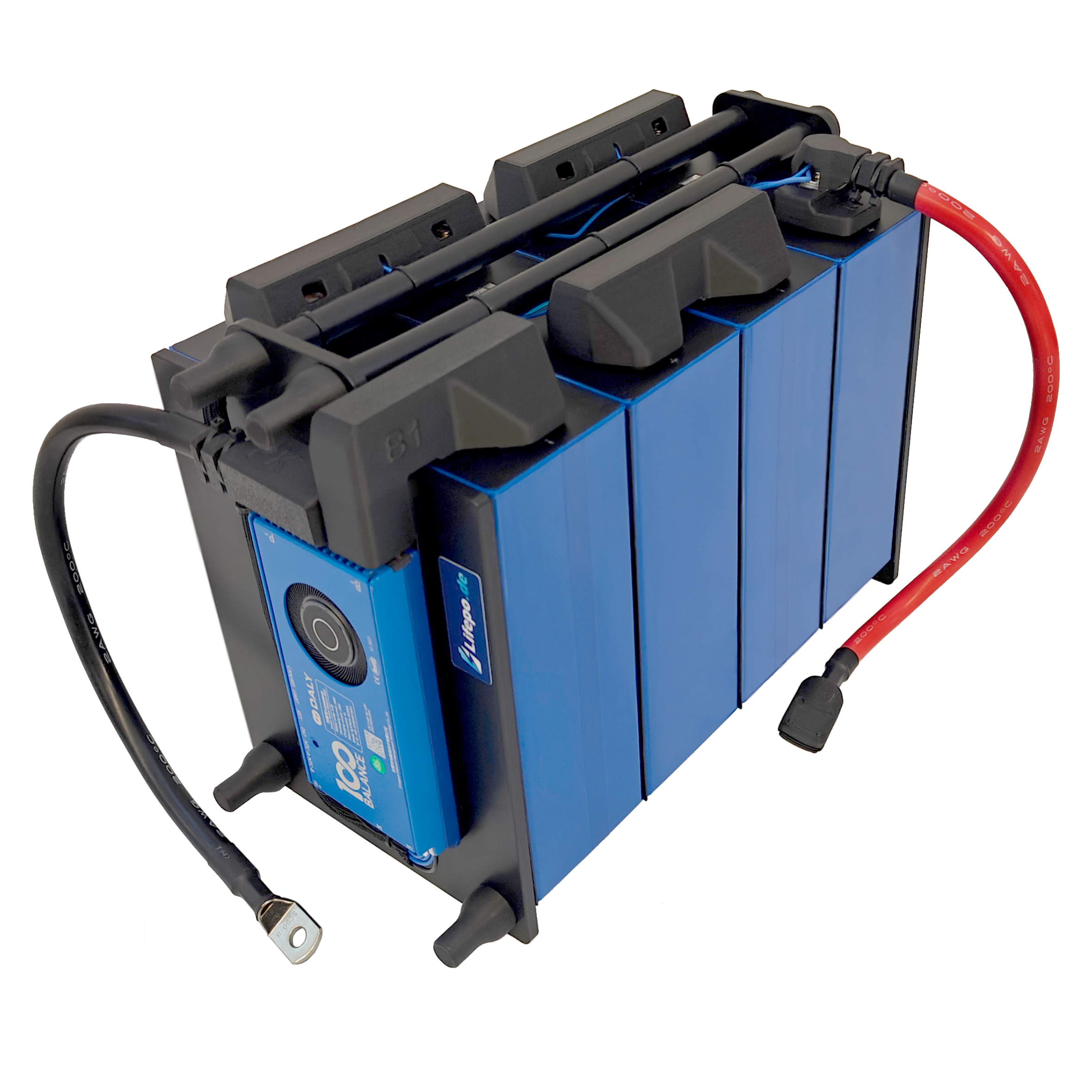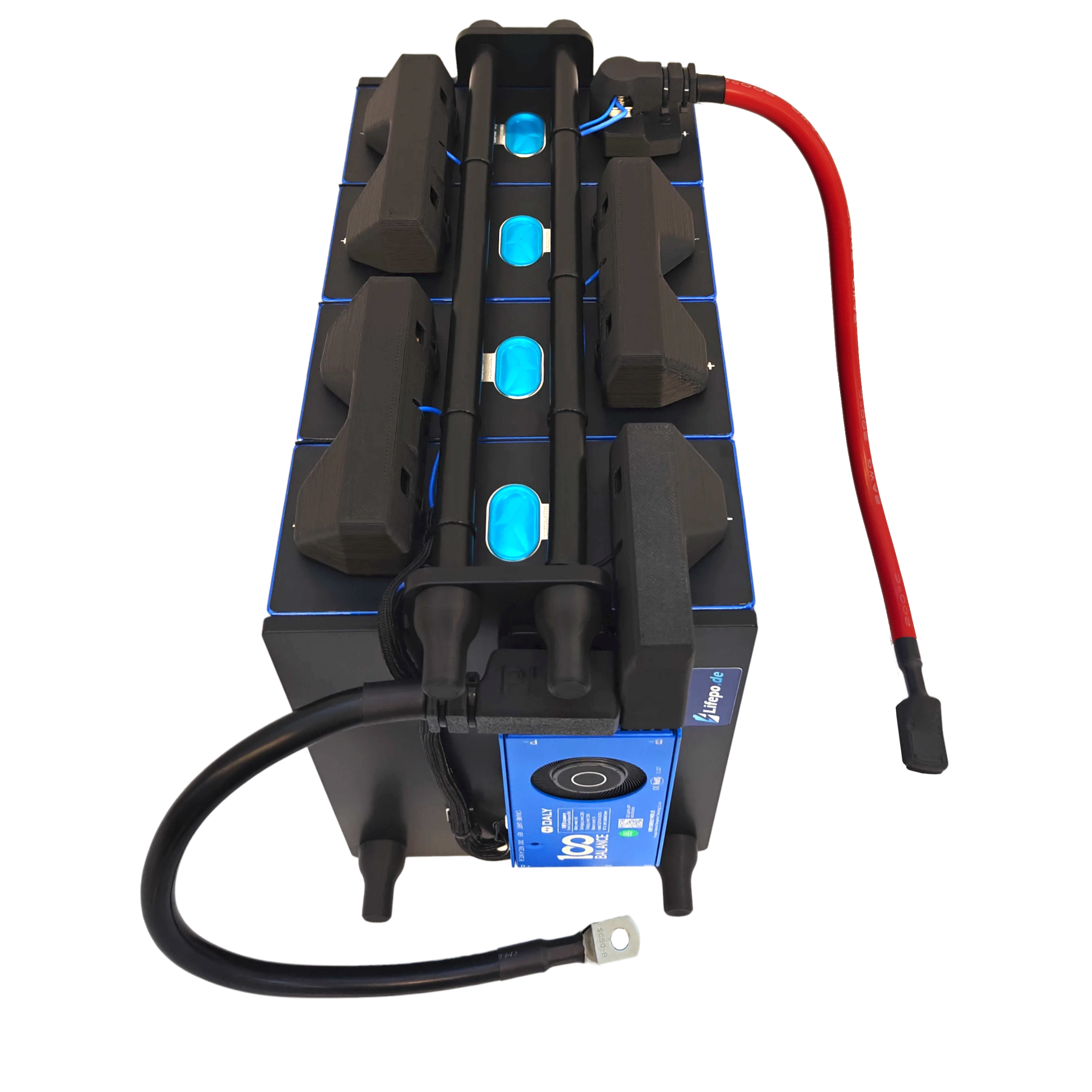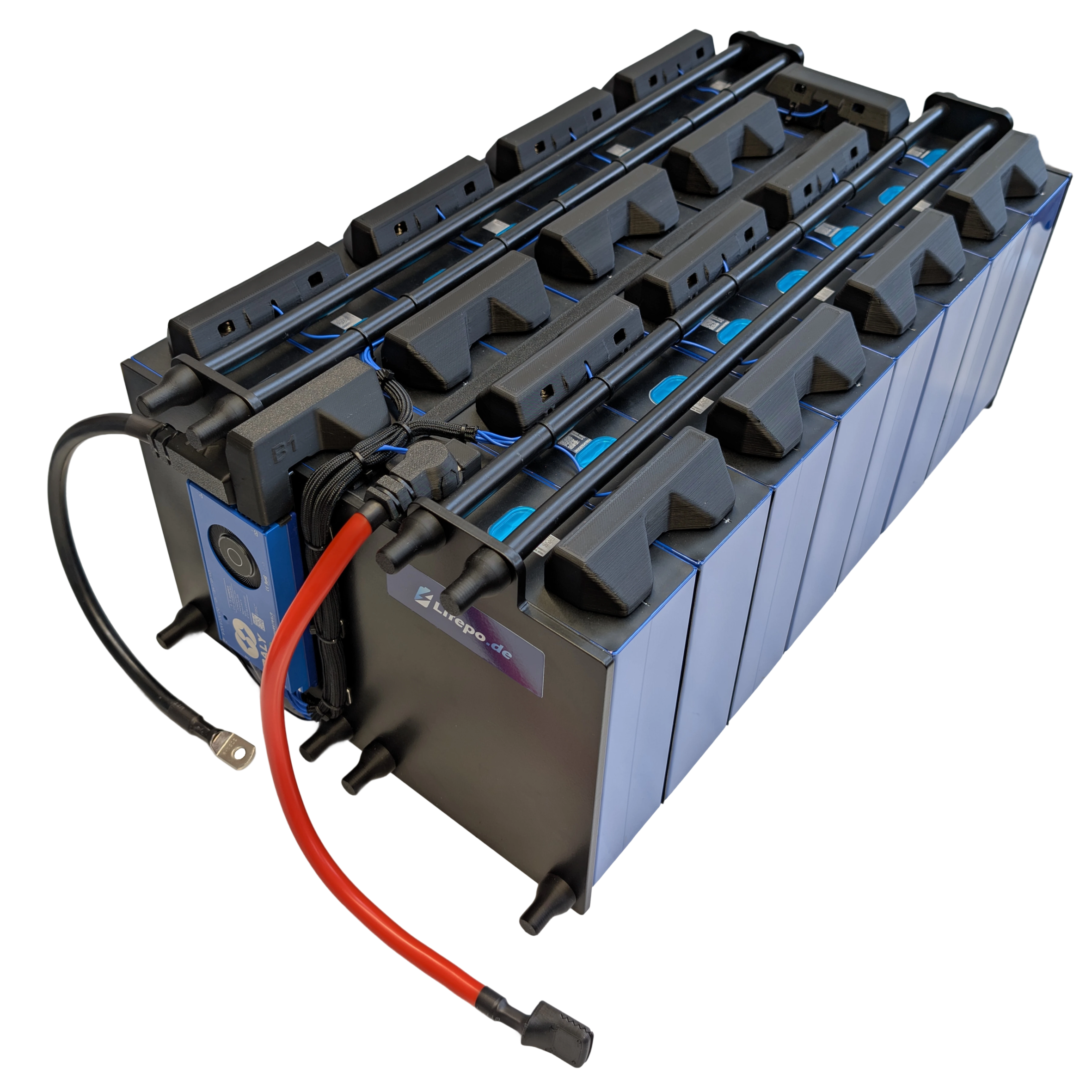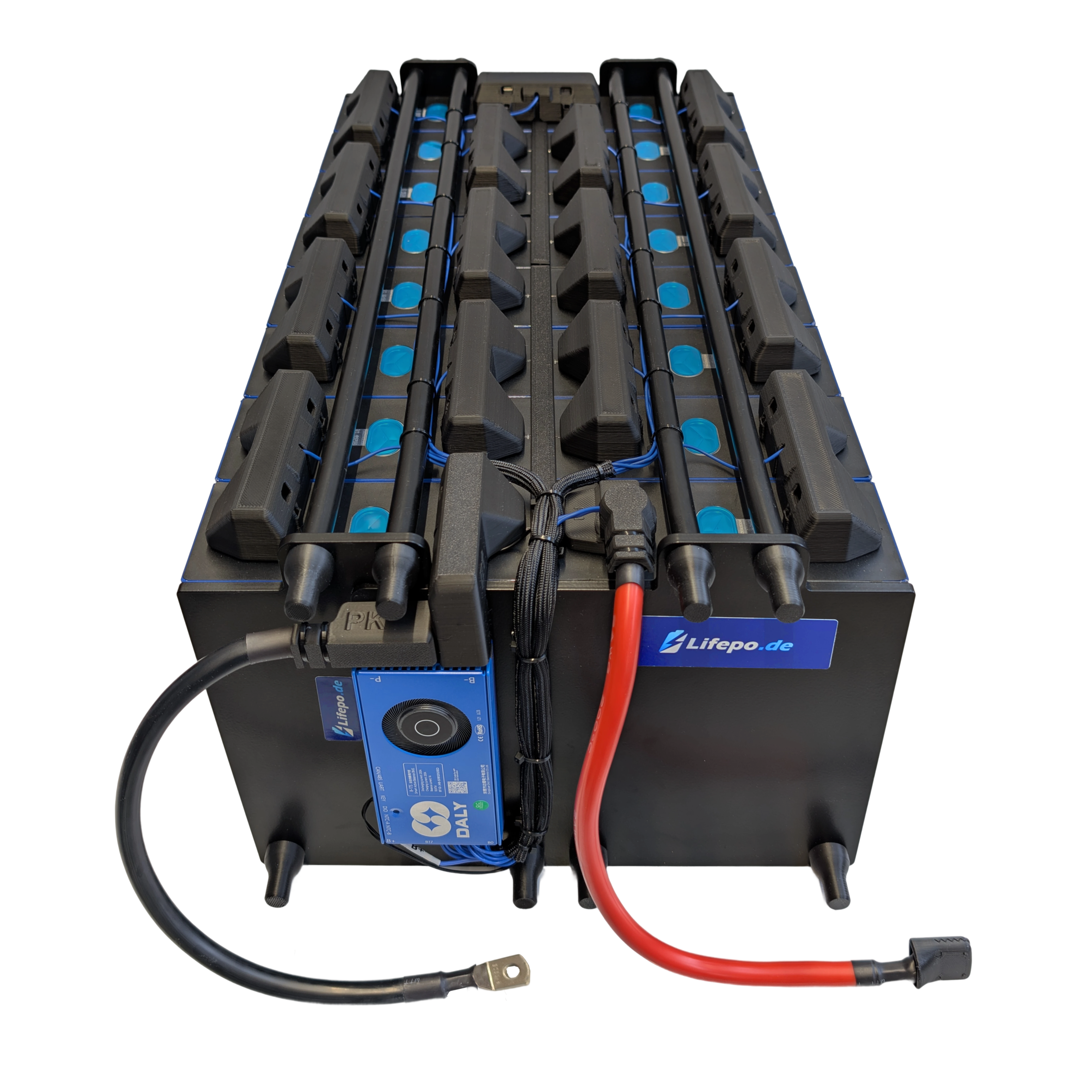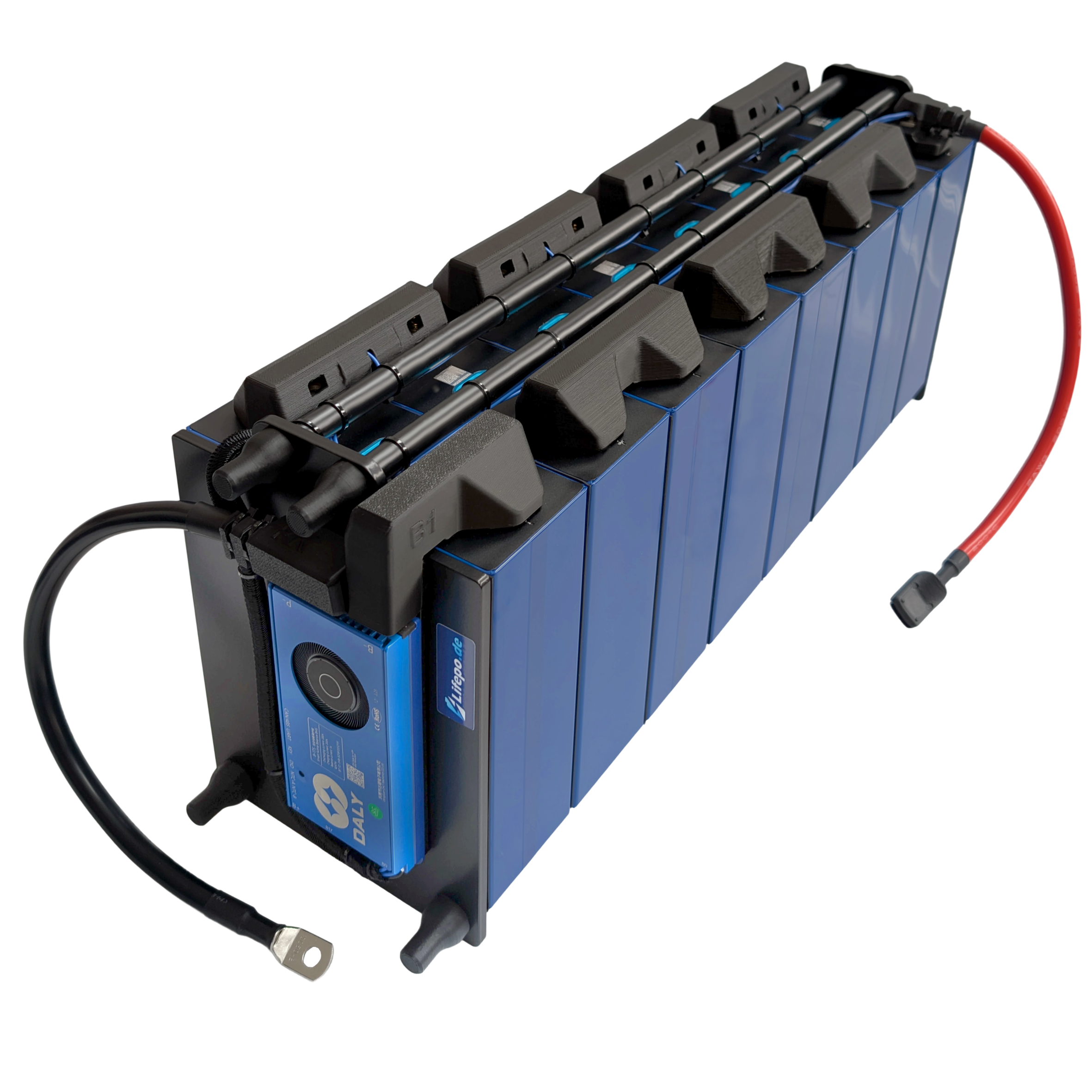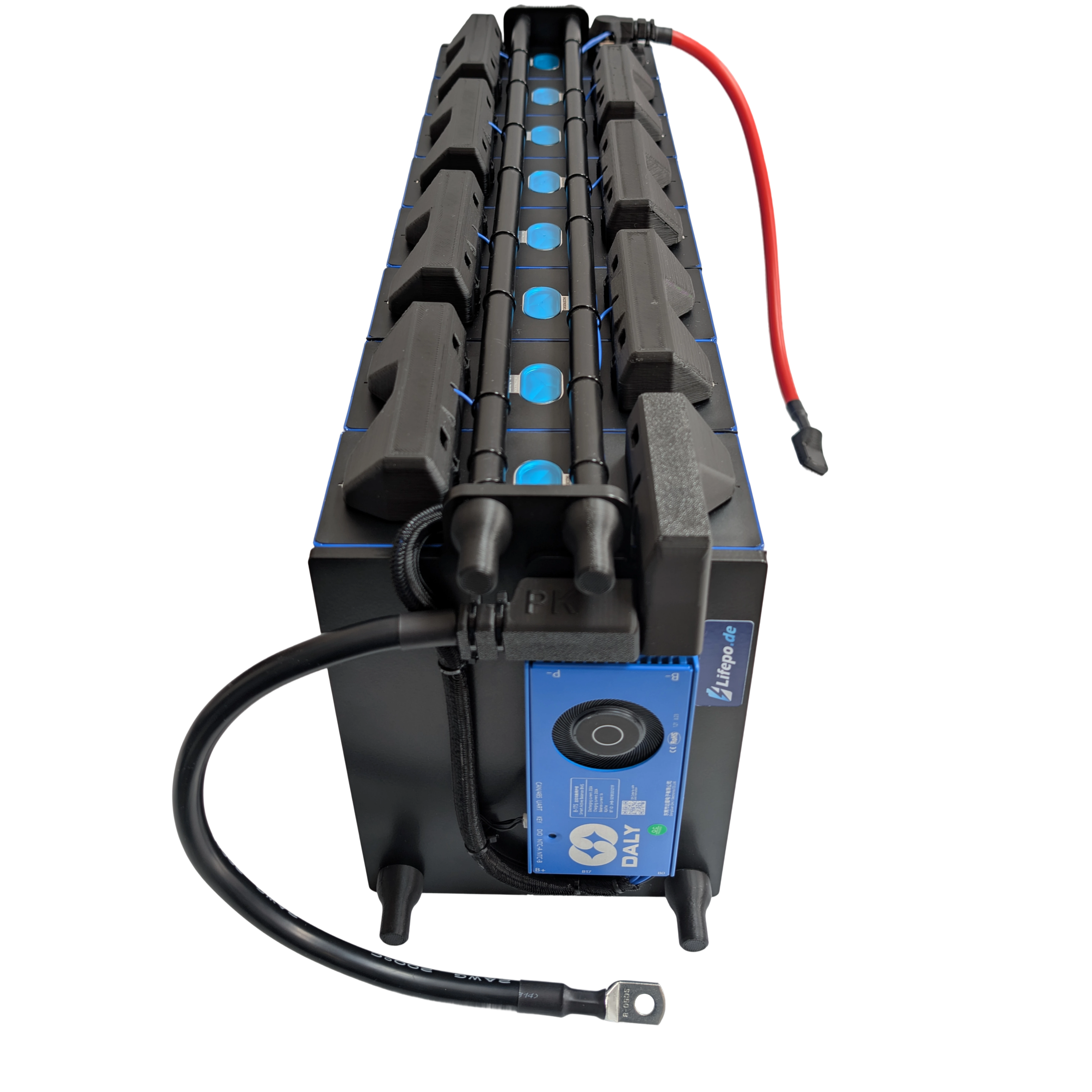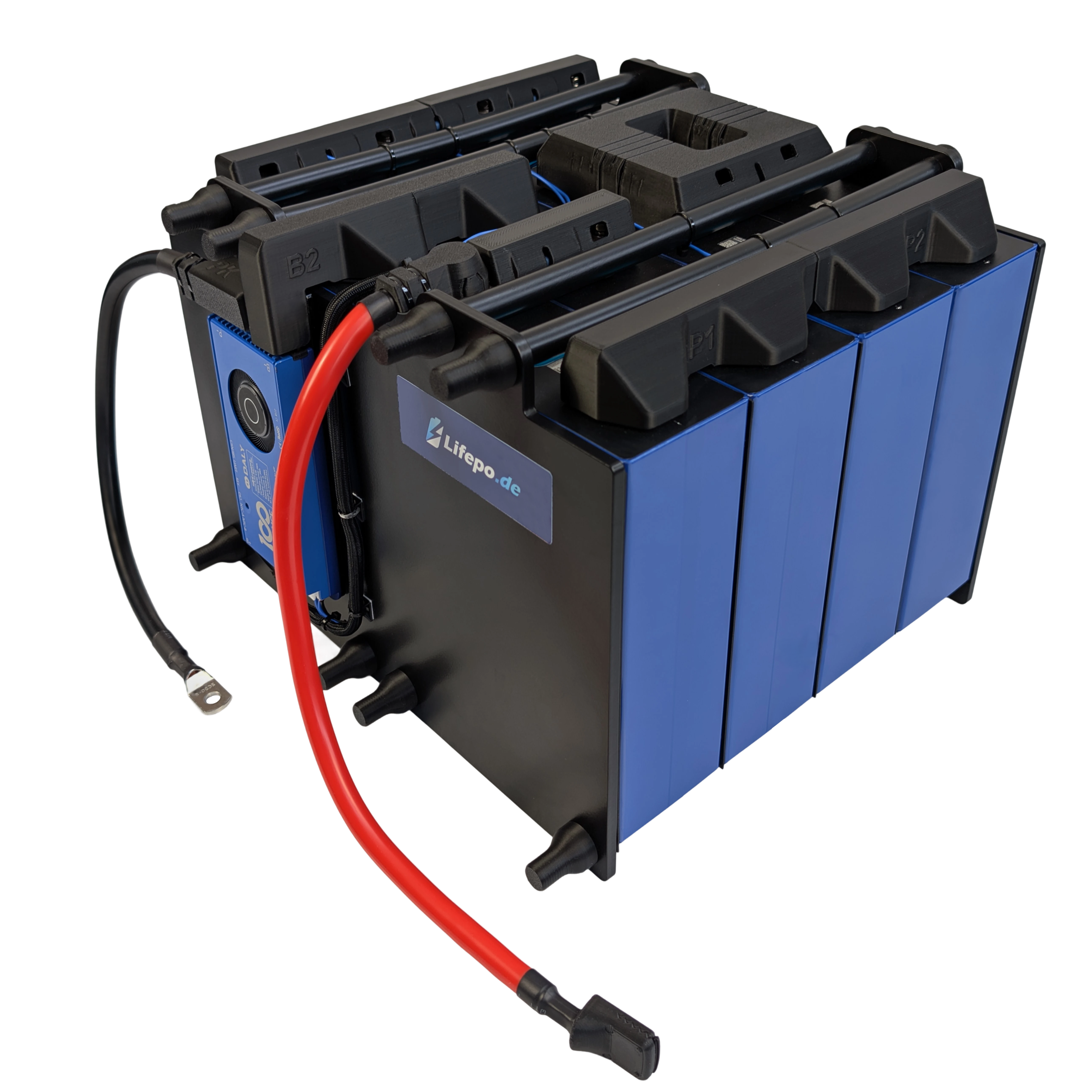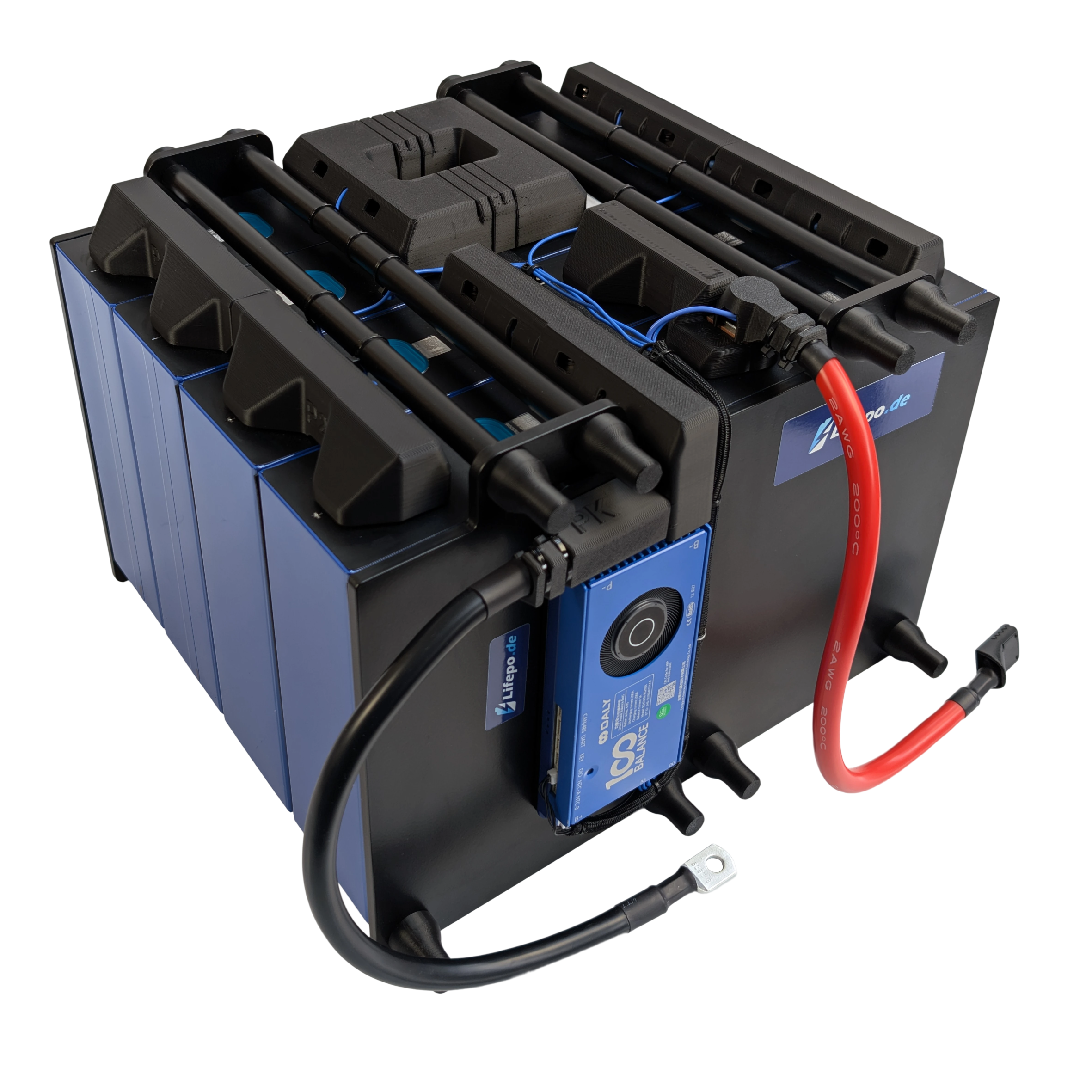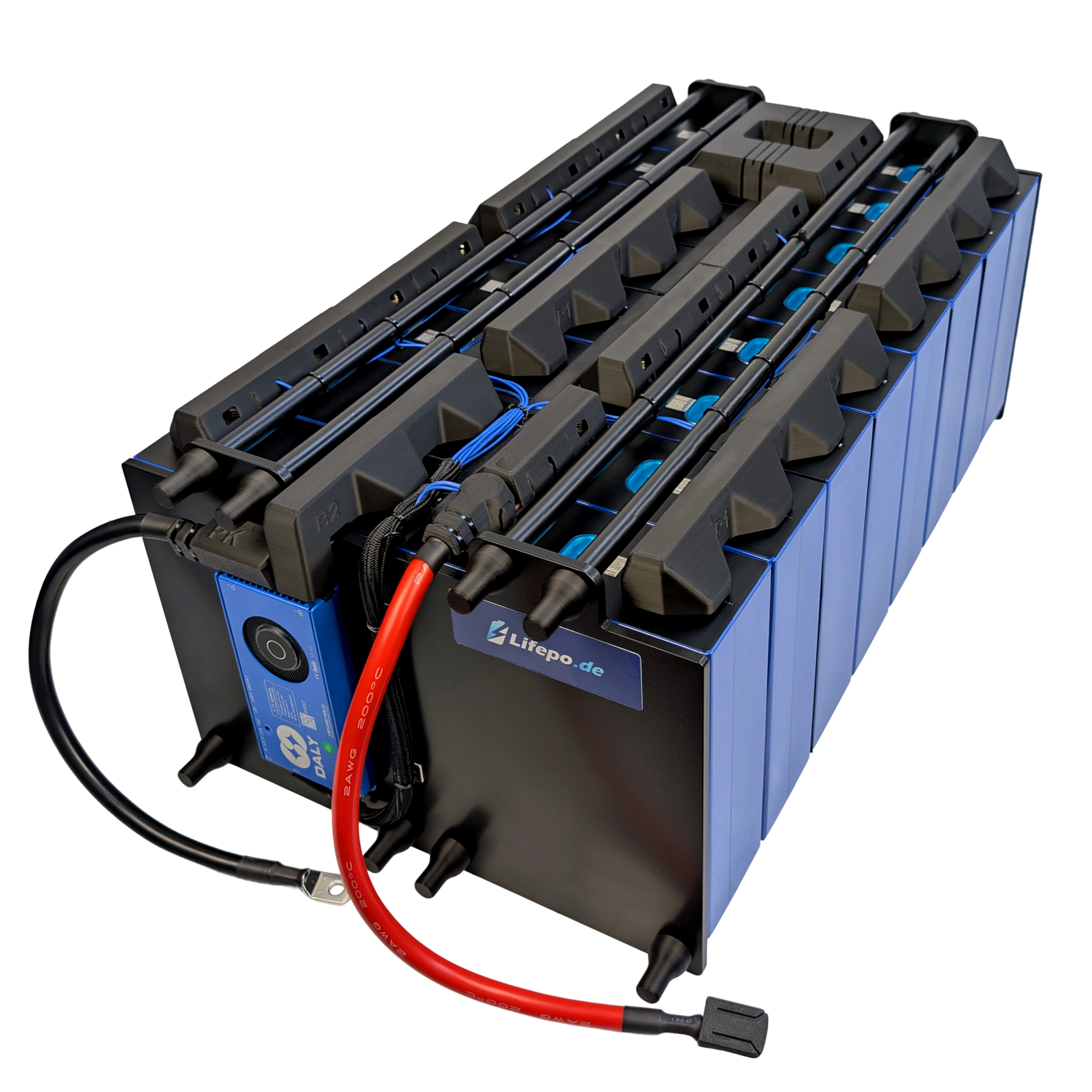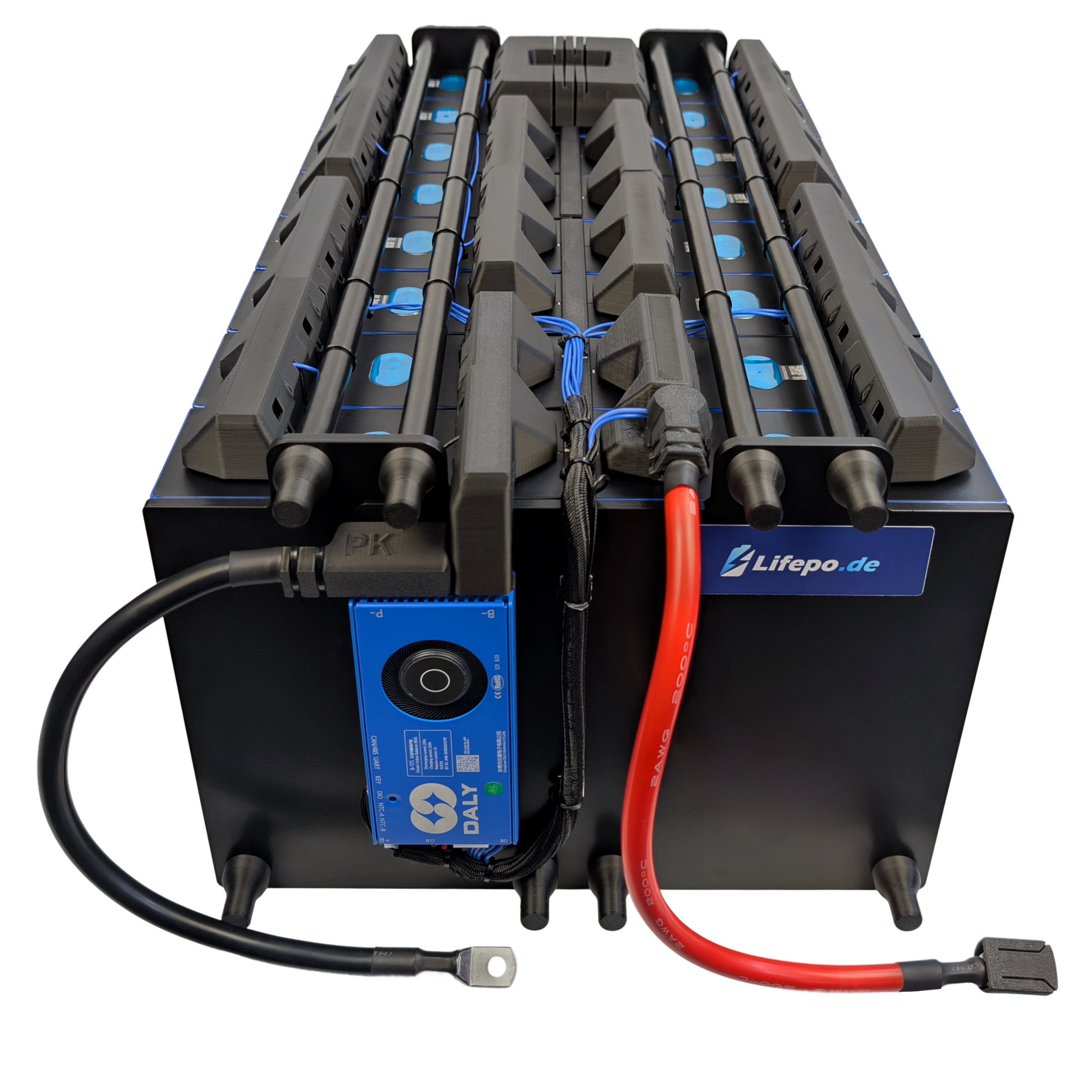Menu

How to build a photovoltaic system with battery storage.
With rising electricity prices and simultaneously low feed-in tariffs for self-generated electricity, solar systems with battery storage are becoming increasingly attractive. In the event of a power outage, such solar storage systems can also be used as a bridge for medium to longer periods, as the system automatically disconnects from the grid via a suitable inverter and operates autonomously.
Our battery systems can z.B. are used in these systems:
PV storage, solar storage for cars, emergency power storage, zero feed-in, power station, etc.
Before installing a solar system, several prerequisites must be considered. Choosing the optimal location for the solar panels is essential, as are the storage capacity and the charge controllers or inverters, to effectively utilize the stored solar energy. Furthermore, the solar system should be designed according to individual needs and the system's location. Generally, the solar system can be designed with a slightly larger capacity to ensure energy production even during the winter months.
The following example refers to the components and their interconnections were discussed.
The generators
Generators for a 48V solar system can be z.BFour standard Victron BlueSolar photovoltaic panels, each with 360 watts, are used. The output of a module can be determined by UMPP x IMPP calculate (38.4 VMPP and 9.38 AMPP, MPP = Maximum Power Point). The total power output of the solar modules is 4 x 360 Wp = 1440 Wp.

The charge controller
To store the power from the modules in the battery, a solar charge controller must be used. This converts the voltage of the photovoltaic module to the voltage of the battery, in this case, 48V. (The voltage range of our 48V LiFePO4 battery is between 40V and 58.4V.) Solar charge controllers are divided into PWM and MPPT charge controllers. A PWM charge controller uses pulse-width modulation, where the voltage of the solar module is adjusted to match the voltage of the battery while the current remains constant. With the modern and significantly more efficient MPPT (Maximum Power Point Tracking) charge controller, the electrical load on the solar module is adjusted so that the maximum power can be extracted from the solar modules.

The battery system
In this example, a 48V 16kWh/312Ah battery storage, with a continuous discharge power and continuous charging power of 10240W watts used. Further technical details about this system can be found [here]. here.
When comparing electrical storage options, lithium iron phosphate technology stands out with its advantages over other storage technologies. The high Safety at only slightly lower energy density, compared to lithium-ion or lithium-polymer batteries, enables applications where even stringent fire safety requirements can be met. Compared to lead-acid and AGM batteries, higher Energy withdrawals are possible, while the cells have a significantly higher cycle stability. This makes battery systems with LiFePO4 technology an attractive option.
The inverter
To make the stored energy usable for household appliances, an inverter must be used. A pure sine wave voltage is essential for sensitive electronics.In this example, the inverter "Victron MultiPlus" is used. 2" This system has the special feature of being able to automatically switch between mains power and battery supply within milliseconds. Zero feed-in is also possible through appropriate software settings. If the solar panels generate very little power over extended periods, the battery can be charged via the mains voltage. Thus, in the event of a power outage, the system could automatically switch to battery power and continue supplying electricity to the household appliances. You can find information on how long this supply can be maintained in the [document/section/etc.]. Performance comparison of our battery systems.

Safety (aspects) and commissioning
For applications using mains voltage, commissioning must be inspected and approved by a qualified professional. For your own safety, systems operating on mains voltage must always have protective devices such as residual current circuit breakers (RCCBs) and fuses integrated.
For smaller applications, such as a balcony power plant, smaller battery systems with smaller Inverters, solar charge controllers, and photovoltaic modules can be combined. This varies from case to case. Cases vary.
The following circuit diagram can be used as an example for basic considerations. Consult your electrician to clarify any questions regarding connection to the public grid and the design of the photovoltaic system.

If you have any questions or suggestions, please feel free to contact us. here through our contact form or under kontakt@lifepo.de to reach.
All information is provided without guarantee.
Have we piqued your interest? Then shop our Lifepo4 battery kits here:
Lifepo4 battery kits
- If you make a selection, the page will be completely updated.
